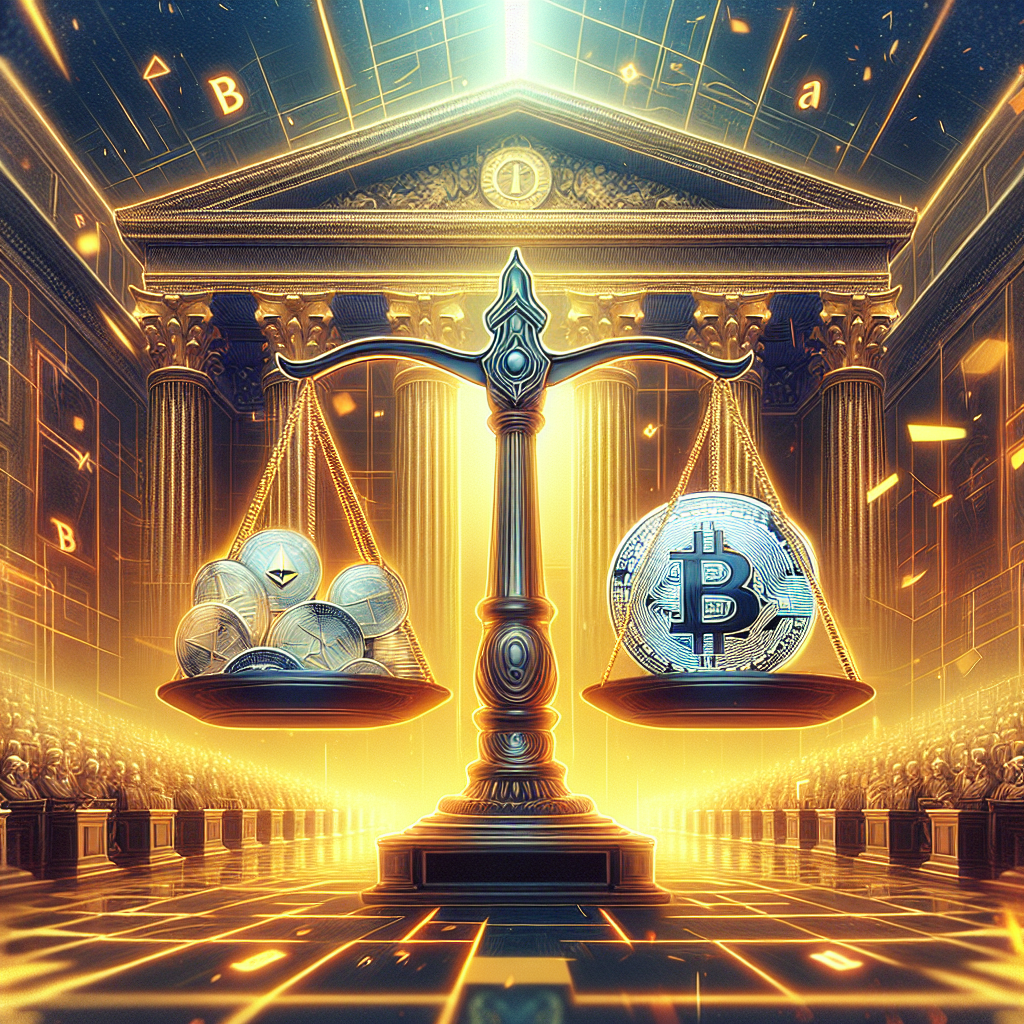SEC’s Ripple Case Victory Confirms XRP Is Not a Security
In a landmark decision that has shaken the cryptocurrency landscape, the U.S. Securities and Exchange Commission (SEC) faced a significant setback in its ongoing litigation against Ripple Labs. The jury determined that XRP, the native cryptocurrency of the Ripple network, is not classified as a security when sold to retail investors. This pivotal ruling has profound implications not only for Ripple but for the broader cryptocurrency industry as well.
The Background of the SEC vs. Ripple Case
The litigation started in December 2020, when the SEC filed a lawsuit against Ripple, alleging that the company conducted an unregistered securities offering worth $1.3 billion through the sale of XRP. The SEC’s argument rested on the premise that XRP, like traditional securities, represented an investment contract under the Howey Test.
Key points leading up to the court’s decision included:
The case has sparked a firestorm of debate within the crypto community, as many companies have been caught in the crossfire of regulatory scrutiny.
The Ruling: What It Means for XRP
The verdict handed down by the jury signifies a substantial victory for Ripple and could herald a new chapter for XRP. The determination that XRP is not a security specifically applies to retail sales, which means that individuals purchasing XRP tokens shouldn’t be subjected to the same regulatory standards applied to traditional securities.
This ruling is significant for several reasons:
- Legal Clarity: The decision provides much-needed legal clarity in the erstwhile murky waters of cryptocurrency regulation.
- Market Response: Following the announcement, XRP’s price witnessed a staggering rally, reflecting enthusiastic market optimism regarding the ruling.
- Precedent Setting: The outcome may set a precedent for other cryptocurrencies that have faced regulatory scrutiny, bolstering their position against similar allegations.
Implications for the Cryptocurrency Industry
The SEC’s loss in the Ripple case is not just an isolated event; it represents a broader shift in regulatory attitudes toward the cryptocurrency market. Financial regulators around the world are grappling with how to approach digital assets, and this ruling could pave the way for more favorable regulations in the U.S. and beyond.
Key industry implications include:
- Increased Adoption: As the regulatory environment improves, businesses and consumers may be encouraged to adopt cryptocurrency technologies and services.
- Investment Opportunities: With the classification of XRP as a non-security, investors might be more inclined to see cryptocurrencies as viable investment options.
- Potential Ripple Effect: Other companies that have faced similar scrutiny may feel empowered to contest SEC claims, potentially leading to a wave of legal victories for the industry.
The Future of Ripple and XRP
Looking ahead, Ripple is not just celebrating a legal victory; the company is poised for growth and expansion in the financial technology sector. With the legal cloud lifted, Ripple can focus on enhancing its services and offerings, potentially partnering with more financial institutions eager to harness the benefits of blockchain technology.
Future developments may include:
- Partnership Expansion: Ripple could deepen its partnerships with banks and payment providers, capitalizing on the renewed interest in its solutions.
- Product Innovations: The company might introduce new innovations that leverage XRP for enhanced transaction speeds and lower costs.
- Global Outreach: As regulatory fears subside, Ripple could enhance its presence in international markets, further validating the use case for XRP.
Cautions and Considerations
Despite the positive outcome for Ripple and the broader cryptocurrency market, stakeholders should approach the ruling with cautious optimism. The SEC still maintains its authority to regulate digital assets, and its strategy may evolve in the wake of this decision. Regulatory scrutiny could remain intense, particularly for projects that do not clearly delineate their compliance efforts.
Points of caution include:
- Ongoing Legal Discussions: Other cases involving cryptocurrencies and securities could lead to further legal challenges for the industry.
- Regulation Ambiguities: There remains uncertainty regarding how other jurisdictions will classify XRP and similar currencies.
- Market Volatility: Cryptocurrency markets are notoriously volatile, and investor sentiment can shift rapidly.
Concluding Thoughts
The SEC’s ruling that XRP is not a security marks a watershed moment in the ongoing evolution of cryptocurrency regulation. It symbolizes hope for a more balanced and informed approach to the rapidly expanding digital asset ecosystem. Ripple’s victory not only vindicates its longstanding position but also acts as a catalyst for other projects striving for clarity in a complex regulatory landscape.
As the world of cryptocurrency continues to grow, stakeholders—from developers to investors—must remain vigilant, informed, and proactive in addressing emerging challenges. With the legal battles ahead, the industry stands at a crossroads, with the potential to redefine the future of finance as we know it. Whether this ruling leads to a larger wave of regulatory reform remains to be seen, but for now, Ripple has firmly established itself as a leader in the fight for clarity and innovation in the digital asset arena.




